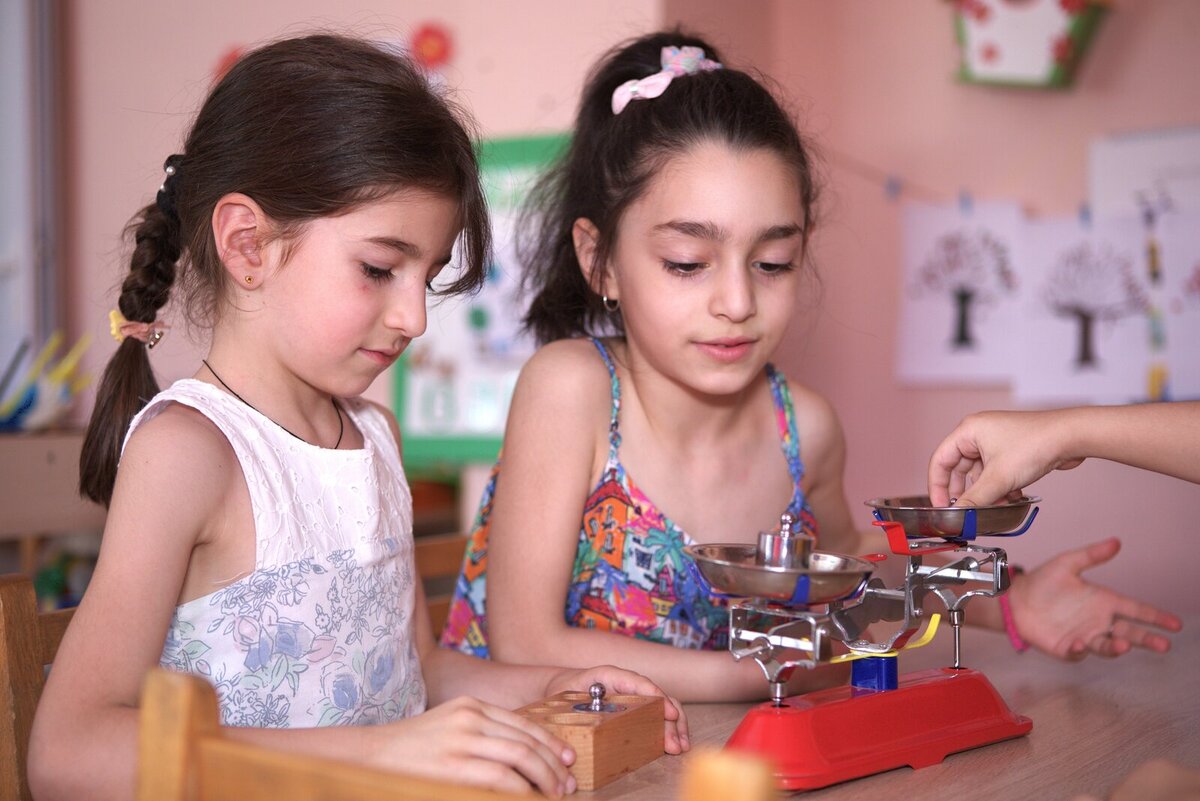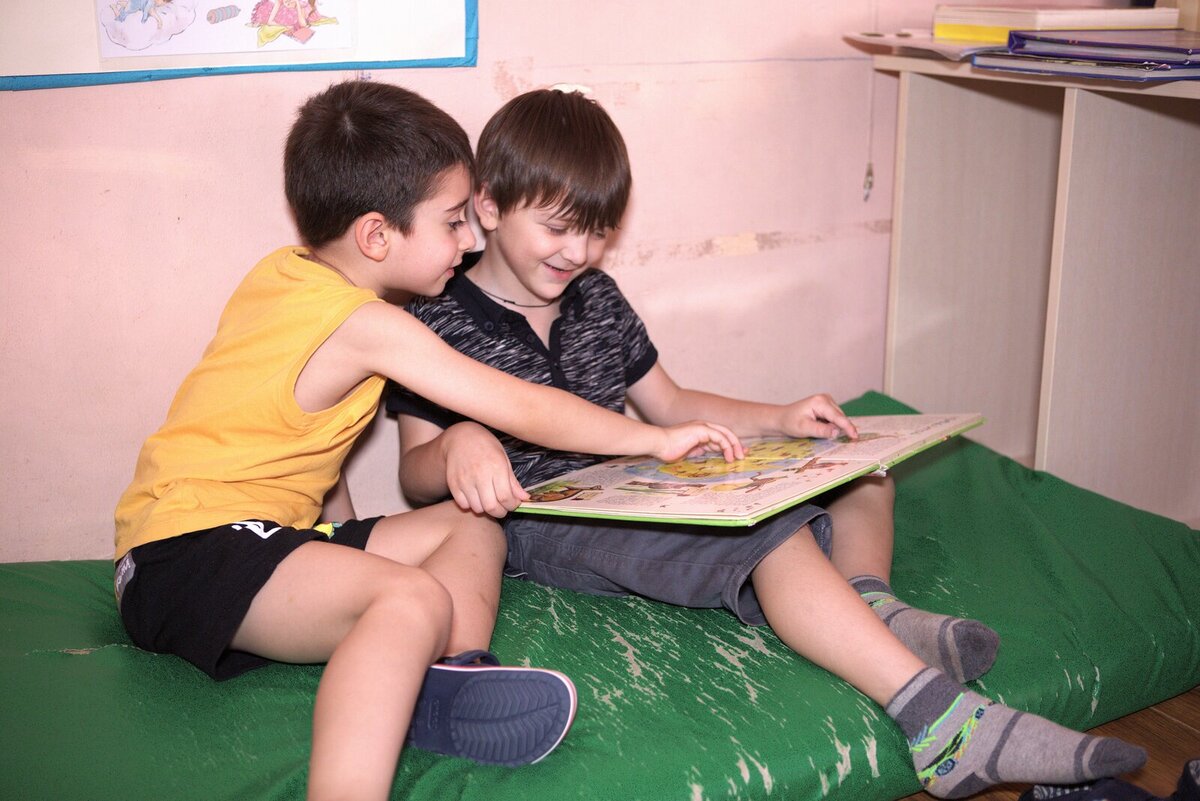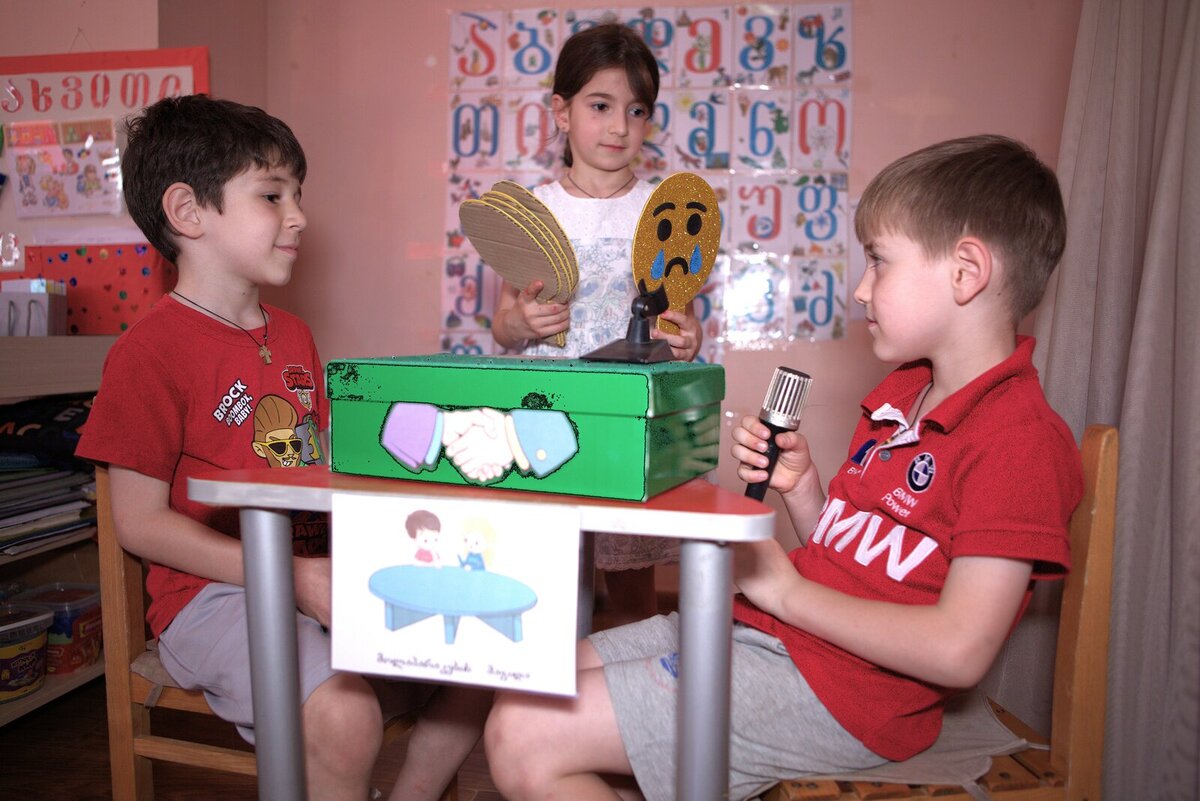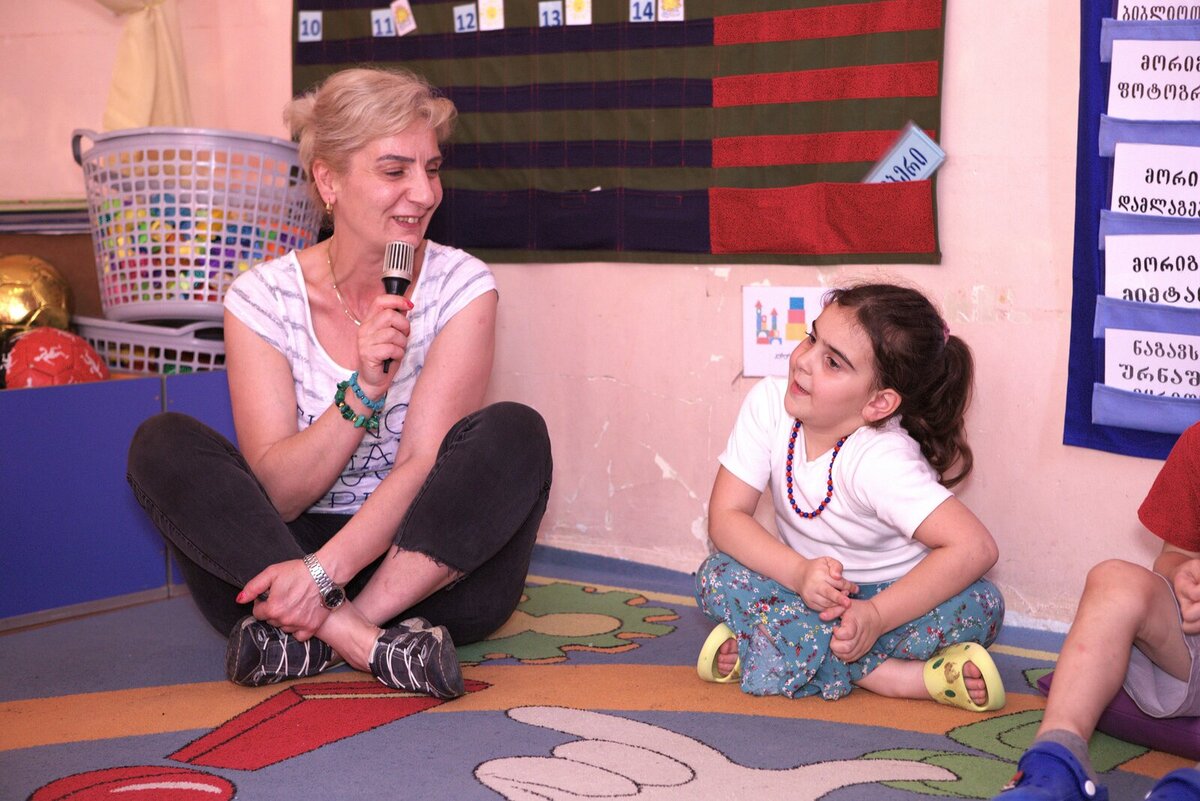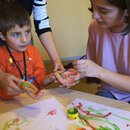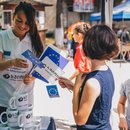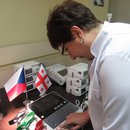Kindergarten plays a vital role in children's early development, so kindergarten teachers and early childhood educators must have up-to-date and evidence-based knowledge to raise children in the right ways. The preschool education system in Georgia is facing many challenges, so it is essential to support this system and take care of its development. Caritas Czech Republic actively works in this direction and helps the Government of Georgia in the reform process. In this article, little Anastasia and Elene tell us what has changed in their kindergarten after new spaces were organized in the educational group and many other innovations were introduced.
Children at the negotiating table
Early childhood educator: Girls, please tell me why your conflict started.
Anastasia, six years old: Elene took my doll.
Educator: Really? And how did you feel, Anastasia, at that time? Show me if you can.
Anastasia: anger (shows the emotion with the respective sign).
Educator: How will you resolve this conflict so that you can continue to be friends and play with dolls together?
Anastasia: When I need a doll, and Elene wants me to give it to her, I will give it to her, and then if she wants it too, Elene should give it to me too.
Educator: So you will always give Elene a doll, Anastasia? And if you were angry before, how are you feeling now?
Anastasia: Now I'm not angry anymore, I'm happy (shows the emotion with the respective sign).
Educator: Elene, what is your emotion?
Elene, six years old: I am surprised (shows the emotion with the respective sign).
Educator: Why are you surprised?
Elene: I don't know how Anastasia will act at other times.
Educator: What emotion were you in when you took the toy from Anastasia?
Elene: sad (shows the crying emotion sign).
Educator: And now?
Elene: Happy (shows the emotion with the respective sign). Anastasia and I are now buying each other toys.
Anastasia: Well, we should share toys.
Educator: What are we to each other in the group?
Anastasia/Elene: good friends.
This dialogue takes place around the negotiation table: six-year-old Elene, Anastasia of the same age, and an early childhood educator sit in front of us. A few minutes ago, Anastasia and Elene quarreled while playing in the drama center of the group. They came to the negotiation table and are trying to find a way out.
The educator only plays the role of a mediator in this process, offering children several reconciliation strategies while the children themselves decide what the best way out of the conflict might be.
Kindergarten room divided into centers
We are in a group of 5-6-year-old children at the 15th Kindergarten in Tbilisi, one of the pilot educational institutions of the Caritas Czech Republic's Children's Early Intervention and Inclusive Education project. There is an enviable peace at this place.
Several elders and about ten children of the group are hosting us and telling us about the recently organized things in their space. Among them is creating a negotiation table, around which Anastasia and Elene found a common language and returned to the game after quarreling with each other.
Lana Gagnidze is a child psychologist at the kindergarten mentioned. She tells us that after the training conducted within the project framework, two groups at this kindergarten were selected for cooperation in the project. Cooperation meant putting the acquired knowledge into practice in unity with children and transforming the physical space in which children spend practically the whole day.
This group is divided into several spaces or let's say, centers, including drama, drawing, sensory, relaxation, and other centers. Each center's height is child-sized so that any child can independently pick up a toy from the container placed in those centers. The centers are noticeably separated from each other and marked with a corresponding sticker—when the child finishes a particular game, the sticker can quickly identify the place from which he took the toy.
"The initiators of everything are the children themselves, which is the most important thing. Every space indicates what is in it, making it easier for children to move independently in these spaces. We offer the essence of free play, where the child is the leader, and when they start playing, we just get involved in his game," says Lana.
There's also a negotiation table, which everyone, young and old, agrees is one of the best news in the group. Lana tells us that when children have a conflict, they go to the table and try to find a way out of the situation with the help of the educator:
"We adults started modeling in the beginning, and then children joined the process. The child must share his feelings at a particular moment and try to reach a consensus with the other child involved in the conflict. The role of the educator is to offer the children several conflict resolution strategies, and the children themselves must choose which one they prefer. If they need help with something, only then do we interact."
At the end of the room is a dramatic space where Elene and Anastasia quarreled. Here, we also see a beauty salon and a kitchen. Some children are messing around in the kitchen as if they are preparing an order from a cafe, and one of the teachers is waiting for the "ordered" ice cream. On the opposite side is a beauty salon, where one of the children is getting another child a haircut.
"We have a children's mirror in the beauty salon. There is a hair dryer, a comb - they say to each other, come and comb my hair - they play roles. It is exciting for them." says Lana.
The room is oblong, quite spacious, and can accommodate many centers. Opposite the dramatic space is a recreation space where children can relax and unwind. A "brazometer" (anger measurer in Georgian) is nearby, where it is possible to measure and deal with anger. To the right of this, we can see the space in which the children and their teachers gather every morning for the children to choose the theme of the day.
"Transitions are important - when a child is engaged in some activity a few minutes earlier, the caregiver tells him that it is time for dinner in a few minutes. This is very important because, for example, if someone suddenly told me to go and take me away, that would definitely break my behavior. Therefore, a transition is necessary - after that comes this, and after that comes that. We have an individual strategy with every child because every child is special." says Lana.
The new physical space will significantly help children with specific requirements
Within the framework of the project, an additional physical space in the territory of the same kindergarten is planned, in which there will be balls, a trampoline, a Swedish wall, etc. Lana says that she has high hopes for this room because in addition to children with typical development, children with specific requirements will also benefit significantly from this room:
"We have two children with specific requirements in our group, with whom a multi-team is working, consisting of a special teacher, a psychologist, a parent, an educator, and the child's direct assistant. If an external therapist also works with the child, they are naturally a multi-team member. The multi-team meets periodically, while its members are constantly in contact with each other by phone so that each of us follows a specific strategy and considers the environment of the garden and early development center or home."
Lana tells us that the multi-team develops an individual strategy and action plan for children with specific requirements and then asks the parent what their priority is. According to her, the parents' priorities sometimes do not match the child's development and capacities at that moment. In such cases, the members of the multi-team have to explain the reality to them in a correct way:
"For example, if a child doesn't have the basic skills to use the toilet, let's say grab a diaper when they want to go to the toilet, we tell the parent that let's first develop that need and then move on to toilet training."
As part of a project supported by the Czech Development Agency, Caritas Czech Republic continues to work with nine more kindergartens in Tbilisi to support early childhood intervention and inclusive education.


